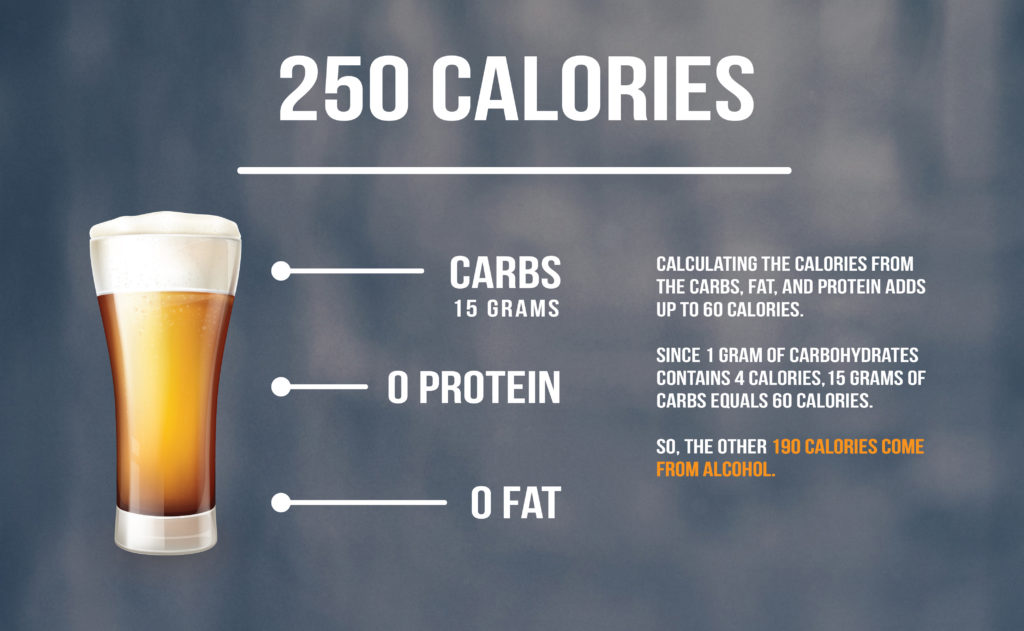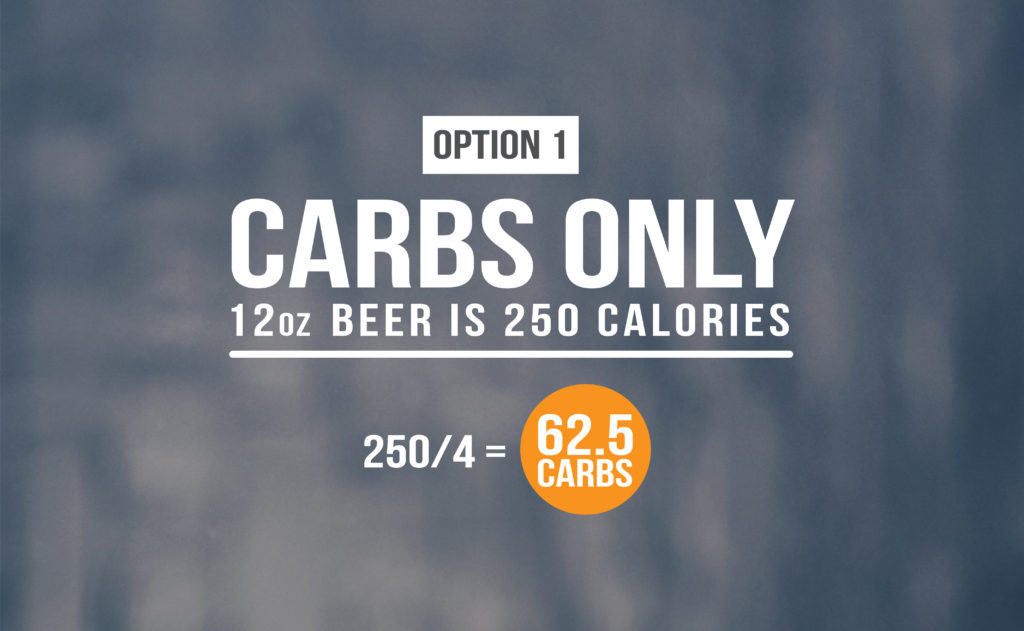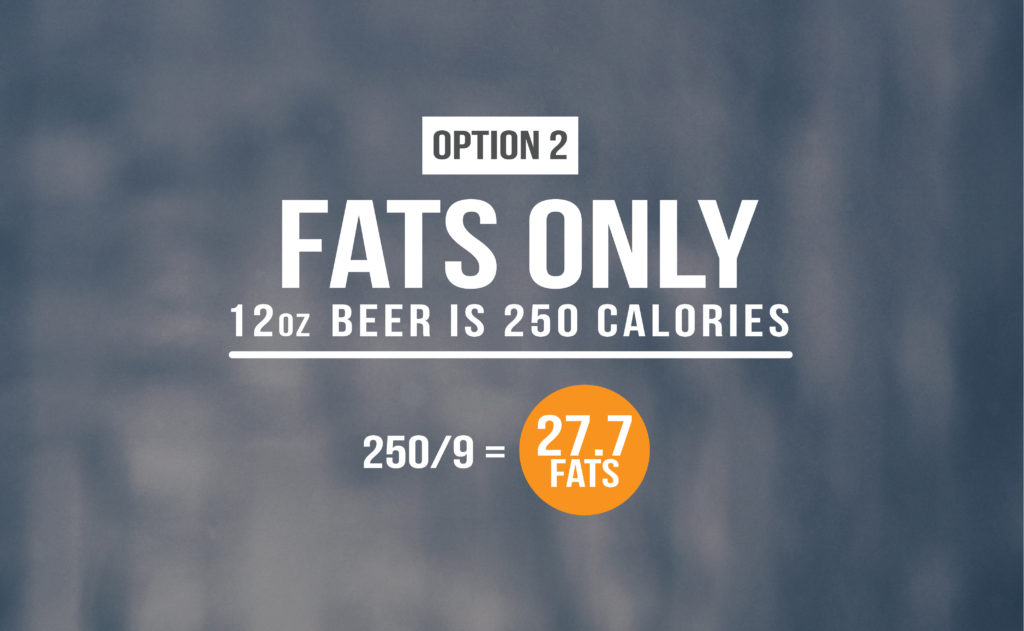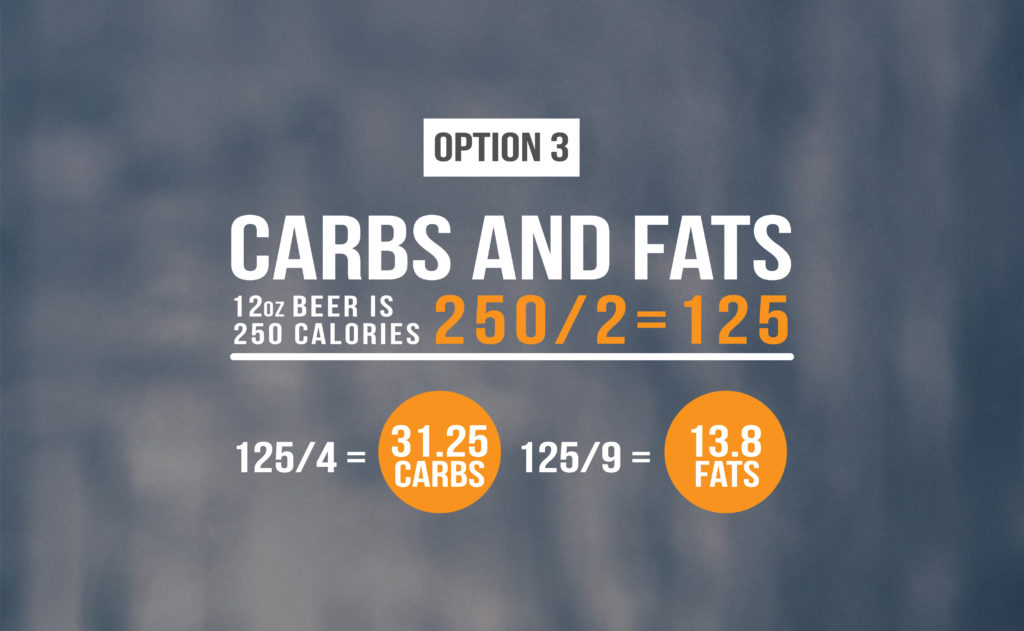Many of our clients ask if they can drink alcohol while counting macros. The short answer is yes; you can drink alcohol while counting macros. In this post, we are going to review alcohol as it pertains to macros and how to track them.
Alcohol and Macros
First, it is important to know that there are four macronutrients – carbohydrates (carbs), protein, fat, and alcohol. Yes, alcohol is a macronutrient. Tracking macros is a method of measuring the amount of food you intake to ensure that you eat the proper balance of protein, carbs, and fats to obtain your goals. The following is the caloric value for each macronutrient:
- 1 gram of protein = 4 calories
- 1 gram of carbohydrates = 4 calories
- 1 gram of fat = 9 calories
- 1 gram of pure alcohol = 7 calories
How to Track Alcohol Into Your Macros
Tracking alcohol is not as simple as looking at the Nutrition Label because alcohol macros are not listed. For example, a beer label might show 0 protein, 15 carbs, and 0 fat but have a total of 250 calories. If you multiply the 15 carbs by four calories, it totals 60 calories – not 250 calories. So where are the extra 190 calories coming from? You guessed it – alcohol.

We do not set alcohol macro goals, but you can track alcohol as carbs, fats, or both, depending on your macro intake. The easiest way to fit alcohol into your macros is by tracking it as carbs. The reason is that most people have more carbs to eat during the day versus fats.
So depending on your intake and how you want to track your alcohol, you have three different options. Be sure to use whichever one fits your daily intake the best!
Option #1: Track Alcohol as Carbs
In the calculation below, we are taking the total calories from our example beer, which is 250 calories and dividing them by 4 (the number of calories in one gram of carbs). This total equals 62.5 grams of carbs – the number of carbs in grams that you will subtract from your daily carb budget per beer.

Option #2: Track Alcohol as Fats
In the calculation below, we are taking the total calories from our example beer, which is 250 calories and dividing them by 9 (the number of calories in one gram of fat). The total equals 27.7 grams of fat – the number of fat grams that you will subtract from your daily fat budget per beer.

Option #3: Track Alcohol as Carbs and Fats
In the calculation below, we are merely taking the total calories from our example beer, which is 250 calories and dividing that by 2, which equals 125 calories. We are then taking 125 calories and dividing it by 4 (the number of calories in one gram of carbs). The total equals 31.25 grams of carbs. We then took the remaining 125 calories and divided them by 9 (the number of calories in one gram of fat), which totals 13.8 grams of fat. You would then subtract 31.25 grams of carbs and 13.8 grams of fat from your respective daily carb and fat budgets per beer.

How do you track your alcohol if you don’t know the calorie content of the alcohol?
The other way to track alcohol if you are unsure of the calories is to measure it as 4 carbs per ounce or 9 fats per ounce. In general, a shot of liquor is typically 1 ounce. You can mix these and do half and half, similar to the method outlined above in Option #3. This method only applies to hard alcohol, beer, liquor, or wine, and NOT mixed drinks. Mixers need to be tracked as well unless you are using a calorie-free mixer like diet soda.
The Negative Effects of Drinking and Dieting
When we drink alcohol, the body must prioritize alcohol over food. During this process, food is not efficiently metabolized and has a much higher probability of storing as fat. Additionally, it is not always the alcohol that throws people off of their diet and prevents them from reaching their goals. It is the snacking and lack of control when drinking that gets people into trouble. If you can have a drink or two and still hit your macros, great! If you tend to overeat every time you drink, you may want to avoid alcohol when trying to reach a specific goal.
If you are an athlete, in prep for a show, or you just have hit a plateau in your weight loss, you should consider prioritizing your goals over alcohol. Sometimes we need to remove alcohol from our diets for a while.

